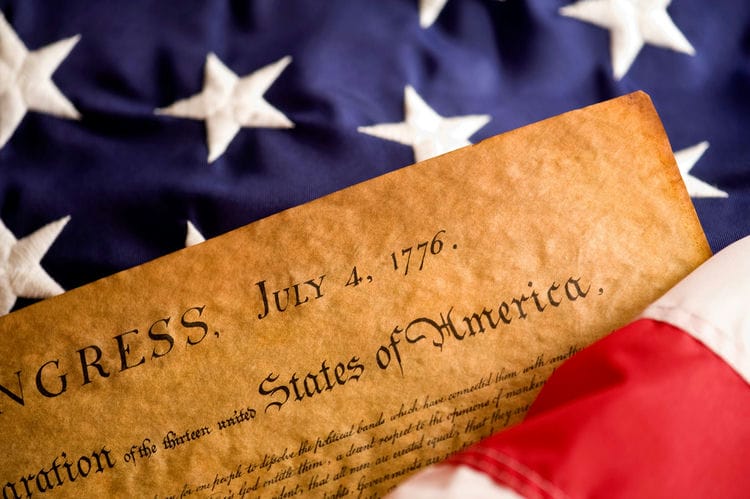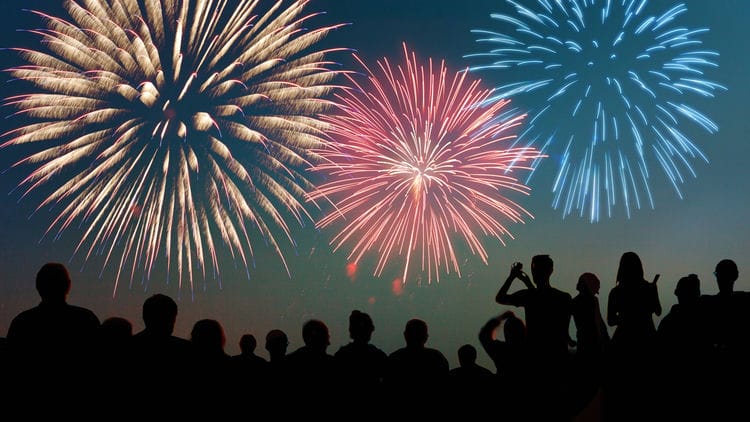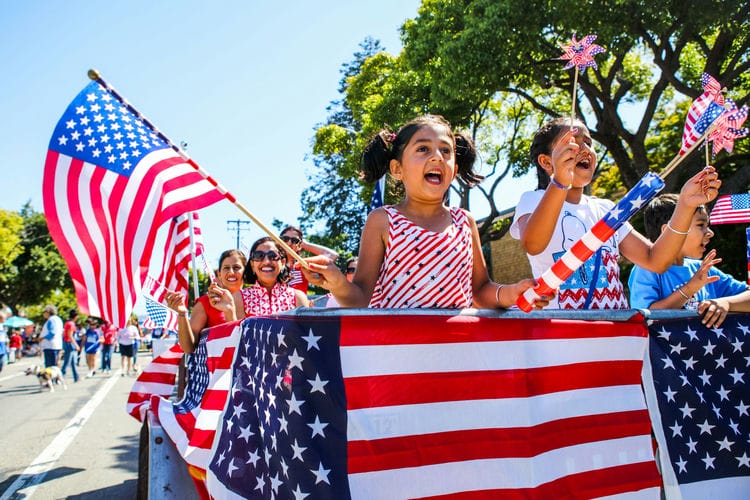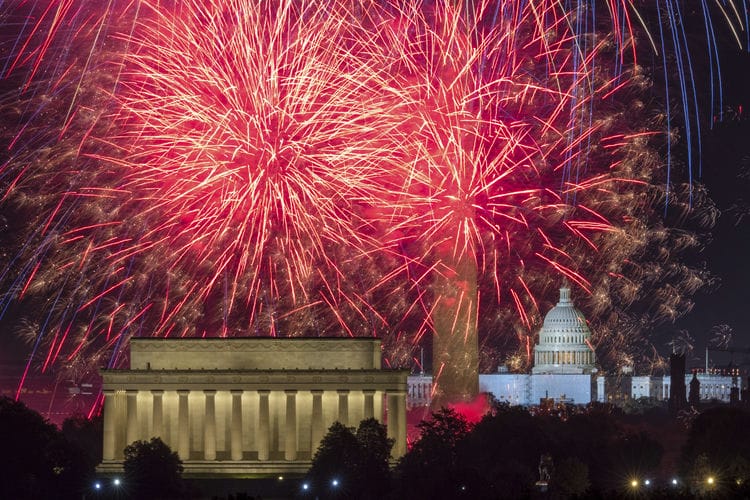FASHION & LIFESTYLE NEWS
Unraveling the History: When Did 4th of July Become a Holiday?
Intriguing readers worldwide, the origins of the 4th of July holiday beckon exploration. When exactly did this momentous occasion transition from a pivotal event in American history to a beloved national holiday? Delving into the question of “when did 4th of July become a holiday” opens a window into the rich tapestry of American tradition and commemoration. Explore the answer with AlibayTrendy Store now!
When Did 4th of July Become a Holiday?
From its Revolutionary Roots to the elaborately woven Celebratory Traditions, the evolution of the 4th of July holiday epitomizes the essence of American history and culture. It was on July 4, 1776, that the Founding Fathers affixed their signatures to the Declaration of Independence, a bold assertion of freedom and self-governance that reverberated throughout the fledgling nation.

In its infancy, the observance of the 4th of July was marked by humble yet heartfelt gatherings, reflecting the raw emotions of a people striving for liberty. Public readings of the declaration became a common ritual, with impassioned citizens coming together to absorb the profound words penned by Thomas Jefferson and his contemporaries. Patriotic displays adorned town squares, with flags fluttering proudly in the breeze, and communal feasts served as a symbol of unity amidst the trials of war and uncertainty.
As the years passed, the significance of the 4th of July continued to deepen, intertwining with the fabric of American identity. The holiday became a cornerstone of national pride, serving as a poignant reminder of the sacrifices made by those who came before. Communities across the young nation embraced the day with fervor, each celebration infused with its own unique blend of local customs and traditions.
From the bustling streets of Philadelphia to the quiet hamlets of New England, the spirit of independence echoed far and wide. Over time, fireworks emerged as a quintessential element of 4th of July festivities, illuminating the night sky with bursts of color and sound. Parades became grand spectacles, featuring marching bands, floats adorned with red, white, and blue, and an outpouring of patriotic fervor that united Americans from all walks of life.
Through the passage of time, the 4th of July evolved from a solemn commemoration into a joyous celebration of freedom and democracy. Today, as we gather with family and friends to honor this hallowed day, let us reflect on the enduring legacy of those who dared to dream of a more perfect union. Let us pay homage to the brave men and women who fought and sacrificed for the ideals we hold dear. And let us recommit ourselves to the timeless principles of liberty, equality, and justice for all.
The Emergence of a National Holiday
The Emergence of a National Holiday marked a significant milestone in the journey of the 4th of July from a regional observance to a universally recognized day of celebration. Despite the widespread acknowledgment and fervent celebrations of Independence Day across the nation, formal recognition at the federal level was a gradual process that unfolded over several decades.

In the early 19th century, the 4th of July began to gain traction as a state holiday in various parts of the country, with states such as Massachusetts and Virginia leading the way. These states recognized the historical significance of the date and sought to honor it with official observances and festivities. Communities embraced the holiday with enthusiasm, organizing parades, picnics, and fireworks displays to commemorate the nation’s birth and reaffirm their commitment to its founding ideals.
However, it wasn’t until the Reconstruction era following the Civil War that the idea of a federal holiday gained serious consideration. With the nation slowly healing from the wounds of war and seeking to reunify, there was a growing recognition of the need for symbols and rituals that could foster a sense of national unity. Against this backdrop, Congress took decisive action in 1870 by officially designating the 4th of July as a federal holiday.
The significance of this decision extended beyond mere symbolism. By granting federal employees a day off to observe Independence Day, Congress affirmed the importance of the holiday as a unifying force for the entire nation. It was a recognition of the shared values and aspirations that bind Americans together across geographic, cultural, and ideological divides.
With the formal recognition of the 4th of July as a federal holiday, the holiday’s status was elevated to new heights. It became not only a day of celebration and remembrance but also a symbol of national identity and unity. From coast to coast, Americans embraced the holiday with renewed fervor, cherishing the freedoms that had been won through generations of struggle and sacrifice.
Shaping Modern Celebrations: Parades, Fireworks, and Traditions
Shaping Modern Celebrations: Parades, Fireworks, and Traditions has been a gradual but profound evolution, transforming the 4th of July from a mere commemoration into a vibrant tapestry of cherished customs and festivities. As the nation matured and grew, so too did the ways in which Americans celebrated their independence.

Parades have long been a central feature of 4th of July celebrations, serving as colorful processions that traverse the streets of cities and towns across the country. Patriotic floats adorned with flags and symbols of American pride roll by, accompanied by marching bands playing stirring renditions of patriotic tunes. Spectators line the sidewalks, waving flags and cheering as the parade passes by, creating a lively atmosphere of camaraderie and community spirit.
Concerts have also emerged as a beloved tradition on Independence Day, offering a platform for musicians to showcase their talent while celebrating the rich tapestry of American music. From symphony orchestras performing stirring renditions of patriotic anthems to local bands playing folk tunes and rock classics, music has become an integral part of the 4th of July experience. Concerts often take place in parks and outdoor venues, providing an opportunity for families and friends to come together and enjoy an evening of music under the stars.
Of course, no 4th of July celebration would be complete without the grand finale: fireworks. Fireworks displays have become synonymous with Independence Day, lighting up the night sky with dazzling colors and patterns that evoke a sense of wonder and awe. From small-town displays to elaborate pyrotechnic extravaganzas in major cities, fireworks have become a cherished tradition that brings people together in celebration of the nation’s independence.
Beyond these mainstays, a myriad of other traditions and customs have emerged to mark the 4th of July. Barbecues and picnics are popular ways to gather with family and friends, while outdoor games and activities provide entertainment for all ages. Community events such as fairs, carnivals, and fireworks cruises offer additional opportunities for celebration and camaraderie.
Continuity in Change: Celebrating the 4th of July Today
Continuity in Change: Celebrating the 4th of July Today embodies a dynamic blend of tradition and innovation, reflecting the evolving spirit of American society while honoring the timeless principles upon which the nation was founded. As we commemorate Independence Day in the 21st century, the significance of this historic occasion remains as potent as ever, resonating with Americans from all walks of life.

Today, the 4th of July serves as an enduring symbol of American freedom and resilience, reminding us of the extraordinary journey that has brought us to this moment in history. It is a day to pause and reflect on the trials and triumphs of the past, to remember the sacrifices made by countless individuals who have fought and died in defense of liberty. It is a time to honor the courage and perseverance of those who have paved the way for future generations, ensuring that the flame of freedom continues to burn bright.
Yet, even as we look back with reverence, the 4th of July is also a time to look forward with hope and optimism. It is a day to celebrate the progress that has been made toward achieving the ideals of equality, justice, and opportunity for all Americans. It is an opportunity to reaffirm our commitment to building a more perfect union, where the principles of freedom, democracy, and human dignity are upheld for every citizen.
In celebrating the 4th of July today, we embrace both continuity and change, recognizing the enduring significance of this historic day while embracing the diversity and dynamism of contemporary American society. From traditional parades and fireworks displays to innovative community events and digital celebrations, the ways in which we honor Independence Day may evolve, but the underlying spirit of patriotism and unity remains constant.
As we come together with family, friends, and neighbors to celebrate the 4th of July, let us remember the words of our nation’s founders, who declared that all men are created equal and endowed with unalienable rights. Let us rededicate ourselves to the noble ideals that have guided our nation for more than two centuries, and let us strive to build a future that is worthy of the sacrifices of those who have come before us
In conclusion, the evolution of the 4th of July from a historic event to a beloved holiday is a testament to the enduring spirit of the American people. As we commemorate this day each year, let us not only revel in the festivities but also remember the profound significance of independence and freedom.
Make this 4th of July even more memorable by adding a touch of style and patriotism to your celebrations. Explore our exclusive collection of 4th of July Hawaiian Shirts at AlibayTrendy Store. From vibrant designs to comfortable fabrics, our shirts are perfect for expressing your American pride in style.
Don’t miss out! Shop now and make a statement this Independence Day with AlibayTrendy Store‘s 4th of July Hawaiian Shirts.
Happy Independence Day!
